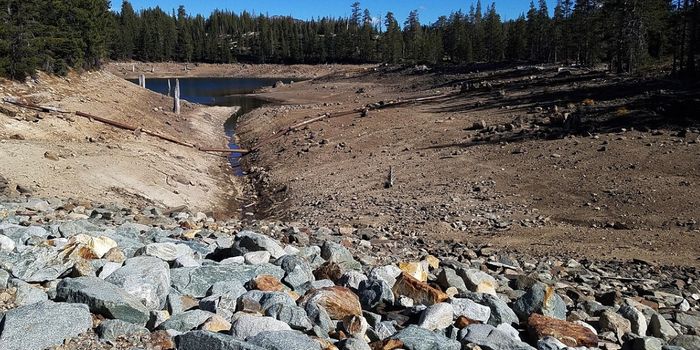What logging does to your water
There are a lot of issues with deforestation. However, for some nations around the world, logging jobs provide stable sources of income that might otherwise be unavailable. But now new research is taking a deeper look into the consequences of logging and asking, at what cost?
The recent study, which was published in Environmental Research Letters, comes from collaborating researchers at The University of Queensland (UQ) and the Wildlife Conservation Society (WCS). It focuses on the impacts of logging in the Solomon Islands and its findings suggest that even in “best case scenarios,” when logging practices are as sustainable as possible, downstream water quality is negatively affected as a result of extensive soil erosion.
People in the Solomon Islands depend on freshwater sources for drinking, irrigation of crops, bathing, washing clothes, etc. The authors of the study are concerned that the high logging rate in the Solomon Islands is ultimately degrading the islands’ landscapes and ecosystems. Commercial logging makes up 18% of government revenue in the nation and at least 60% of exports. "When land-clearing extent reached 40% in our models, international standards for safe drinking water were exceeded nearly 40 percent of the time, even if best practices for logging were followed. Loss of the upland forest will compromise local access to clean water essential for drinking, bathing, and household washing," said Dr. Amelia Wenger, UQ School of Earth and Environmental Sciences Postdoctoral Research Fellow.
The significance of these findings may play a crucial role in the process of creating a national park to protect forests on Kolombangara Island. The Kolombangara Island Biodiversity Conservation Association (KIBCA) is a community-based organization that aims to conserve the island's rich marine and terrestrial biodiversity and it has its sights set on giving legal protection to a series of the island’s forests that are both culturally and biologically noteworthy. If KIBCA is able to use the study’s results to prove to residents the importance of their island’s forests, they may be able to put stricter logging regulations in place.
KIBCA coordinator Ferguson Vaghi said: "Previously people in Solomon Islands made decisions about logging from a selfish economic perspective. This study highlights that we also need to consider the impacts to the downstream environment."
Of course, to make real changes, the authors stress that national enforcement on logging policies must become a priority. As WCS Melanesia Director Dr. Stacy Jupiter explains: "Saving tropical forests worldwide depends upon tighter regulation of national laws and policies, as well as local buy-in for forest management. This study nicely illustrates why we need to take action now to protect the world's remaining intact forest landscapes in order to preserve their biodiversity and important ecosystem services for people."
So now the question is, will the people and government listen to science’s warnings?
Sources: Environmental Research Letters, Science Daily









